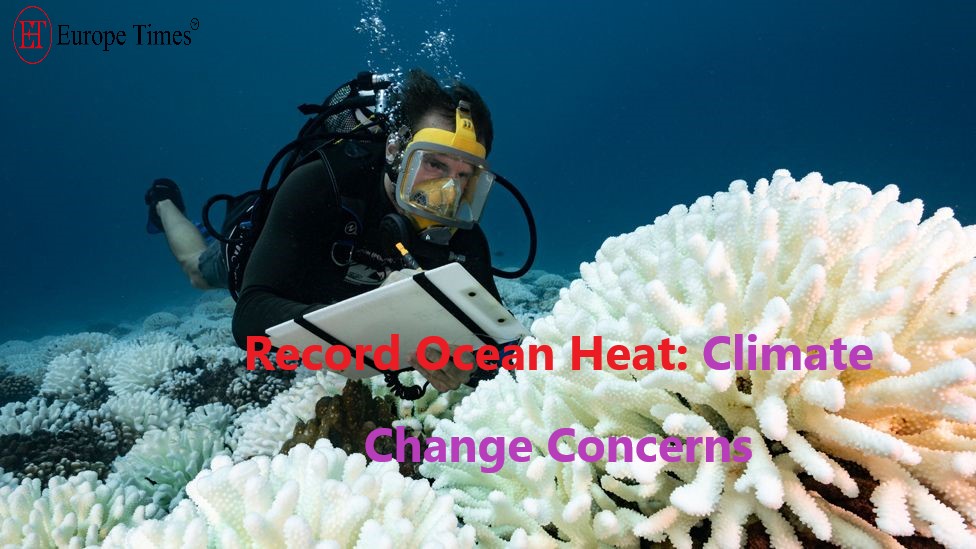Record-Breaking Ocean Heat: Alarming Consequences for the Planet

The Earth’s oceans have experienced their highest recorded temperatures ever, absorbing warmth due to climate change, which has concerning implications for the planet’s well-being. According to the EU’s climate change service Copernicus, the average daily global sea surface temperature surpassed the 2016 record this week, reaching 20.96°C, well above the typical level for this time of year.
Oceans play a crucial role in regulating the climate, absorbing heat, generating half of the Earth’s oxygen, and influencing weather patterns. However, warmer waters have a reduced capacity to absorb carbon dioxide, leading to increased levels of the planet-warming gas in the atmosphere. Additionally, higher temperatures can hasten the melting of glaciers, contributing to rising sea levels.
The impact of hotter oceans and heatwaves extends to marine species, causing fish and whales to seek cooler waters and disrupting the food chain. Predatory animals like sharks may become more aggressive in these conditions. Furthermore, marine heatwaves are causing coral bleaching and fatalities in various regions, highlighting the stress that human activities, including pollution and overfishing, place on the oceans.
Scientists express concern about the timing of this record-breaking heat, noting that March should be the warmest month for oceans globally, not August. They attribute the increasing ocean temperatures to climate change, as the seas absorb most of the heat from greenhouse gas emissions. The burning of fossil fuels exacerbates this situation, prolonging the time required to stabilize ocean temperatures.
The current broken temperature record follows a series of marine heatwaves in different parts of the world this year, including the UK, North Atlantic, Mediterranean, and Gulf of Mexico. The frequency and intensity of these heatwaves have been on the rise, with marine heatwaves doubling between 1982 and 2016, according to the Intergovernmental Panel on Climate Change (IPCC).
While air temperatures have risen significantly in recent years, oceans take longer to warm up due to their higher heat-absorption capacity. However, it appears that ocean temperatures are now catching up, possibly due to stored heat from ocean depths surfacing, potentially linked to El Niño events.
Though scientists have expected sea surface warming due to greenhouse gas emissions, they are still investigating the specific reasons behind the recent surge in temperatures, which have far exceeded previous records.
Picture Courtesy: Google/images are subject to copyright
